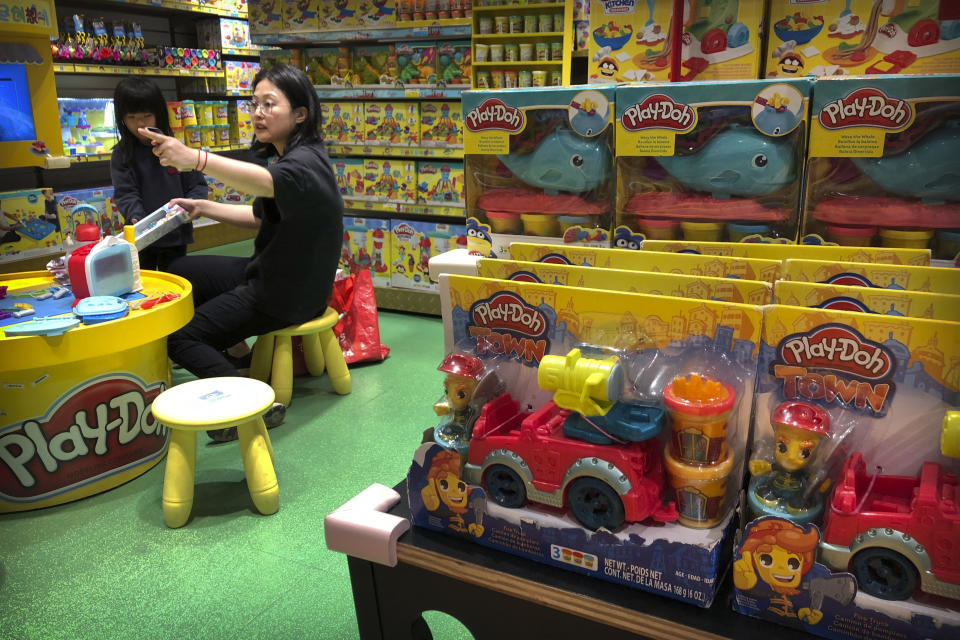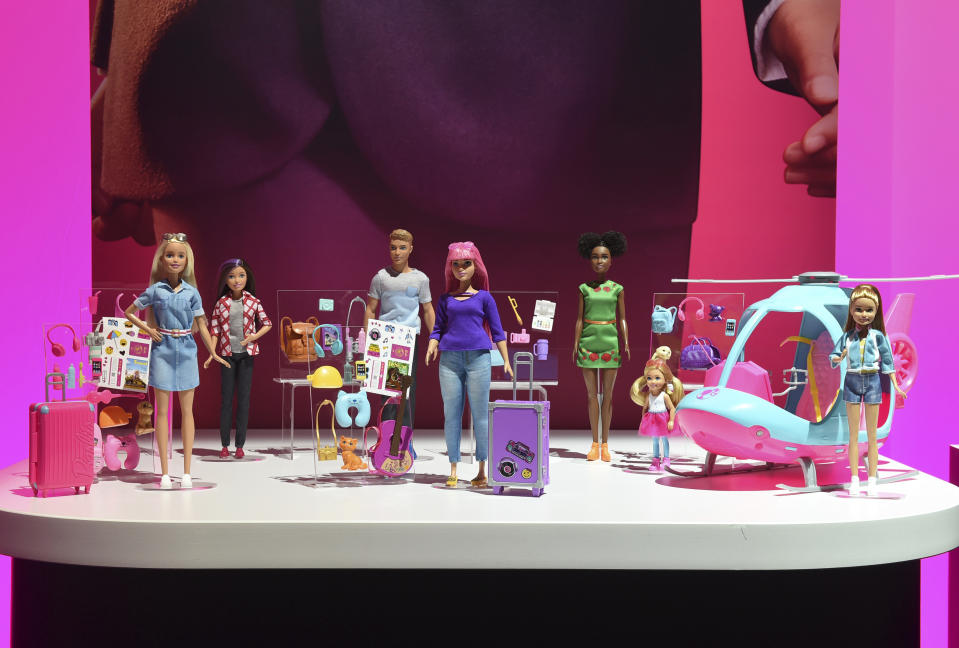Hasbro: Tariffs could not come at a worse time for toy industry
Hasbro (HAS), the company behind iconic toys and games like Monopoly and Play-Doh, says new tariffs could drive up the cost of toys, devastate the industry and lead to safety risks.
The toymaker is one of hundreds of companies that have been testifying in Washington over the past week, asking the Trump administration to spare them from the next round of tariffs.
Hasbro’s Chief Operating Officer, John Frascotti, is set to testify on Monday.
In comments submitted ahead of the testimony, the company told United States Trade Representative Robert Lighthizer that 85% of all toys sold in the U.S. are imported from China.

Right now, toys and games are on the list of $300 billion worth of Chinese goods that could face tariffs of up to 25%.
Hasbro argues the tariffs would cause “significant and disproportionate” economic harm to the toy industry and American families. The company estimates more tariffs could cut the toy industry’s contribution to the U.S. economy by $10.8 billion.
“This could not come at a worse time for our industry. We, and the U.S. toy industry overall, are facing serious headwinds from the recent bankruptcies of two major toy retailers, K-Mart and Toys ‘R’ Us, which have already put an estimated 30,000 U.S. jobs at risk,” said Kathrin Belliveau a senior vice president at Hasbro, in comments submitted to USTR ahead of the hearing.
Belliveau said the tariffs would make things worse, and lead to potential job losses throughout the industry — including at Hasbro.
Mattel (MAT) also submitted comments to USTR, saying the tariffs would put American jobs at risk.
“Although unskilled production operations typically occur in China, the U.S. toy, game and juvenile products industry maintains major product design, marketing and other key operations in the United States that would be negatively affected by tariffs on these product,” said Corinne Murat, Mattel’s director of government affairs, in the submitted comments.
Mattell said that in 2018, China accounted for $11.9 billion, or 84% of total U.S. imports of toys.
Tariffs could lead to safety risks for kids
If the tariffs drive up the price of toys, Hasbro expects consumers will buy fewer of them – or buy cheaper, potentially unsafe toys instead.
“The tariffs could incentivize U.S. consumers to purchase cheaper, unsafe, counterfeit toys that do not meet stringent U.S. safety standards,” said Belliveau in the prepared comments.
Those safety standards are part of the reason toymakers say they are so dependent on Chinese manufacturers, and why that’s not likely to change anytime soon.

“A hasty change in sourcing could jeopardize the safety guardrails carefully constructed by U.S. toy companies for this supply chain,” said Murat.
“Our suppliers in China are qualified and trained to meet the strict U.S. product safety standards that apply to toys and games manufactured for use by children,” said Belliveau. “That workforce does not currently exist outside of China.”
Still, Hasbro says it has been trying to diversify its supply chain since 2012. At that time, it says 80% of the products sold in the U.S. came from China. In 2018, that number dropped to 67% and the company’s goal is to reach 60% by the end of 2020.
“In the meantime, Hasbro and other U.S. toy companies will have no choice but to continue importing toys and games from China and passing along the increased cost of the tariffs to American customers,” said Belliveau.
Right now, Hasbro says 20% of its toys and games sold in the United States is made in the United States.
In its prepared remarks, Hasbro said the tariffs would not accomplish the administration’s goal of boosting American manufacturing — but instead, the tariff burden would make it harder to move manufacturing outside of China.
In its prepared comments, Mattel made a similar argument, noting consumers will be hurt no matter how toy companies respond to the tariffs.
“It would be difficult to switch sourcing in the near future, meaning the proposed tariffs would result in higher consumer prices and reduced consumer choice. In the event increased tariffs eventually force U.S. toy companies to switch from their established Chinese suppliers, the companies would incur significant initial testing and certification costs associated with their new suppliers, again resulting in higher consumer prices,” said Murat.
Jessica Smith is a reporter for Yahoo Finance based in Washington, D.C. Follow her on Twitter at @JessicaASmith8.
Senators want to roll back tax cuts to create jobs for long-term unemployed
Republican senator: Facebook is 'expanding their monopoly' with Libra
Businesses head to DC to make their case against tariffs
Read the latest financial and business news from Yahoo Finance
Follow Yahoo Finance on Twitter, Facebook, Instagram, Flipboard, LinkedIn,YouTube, and reddit.
